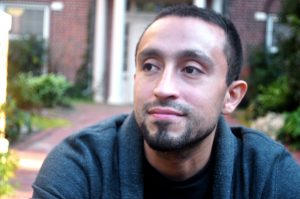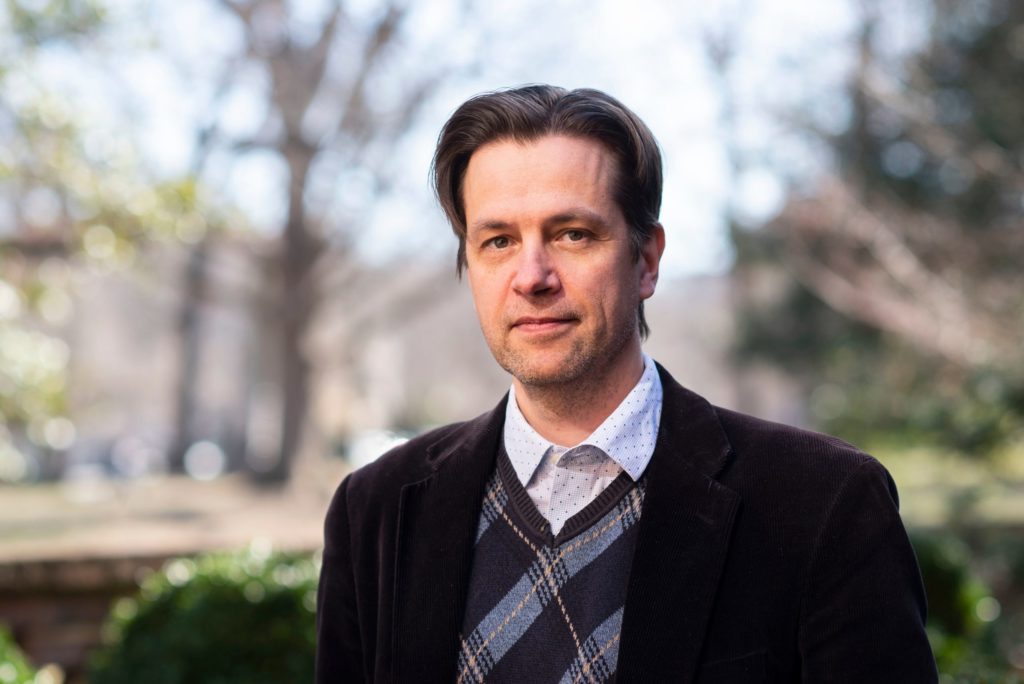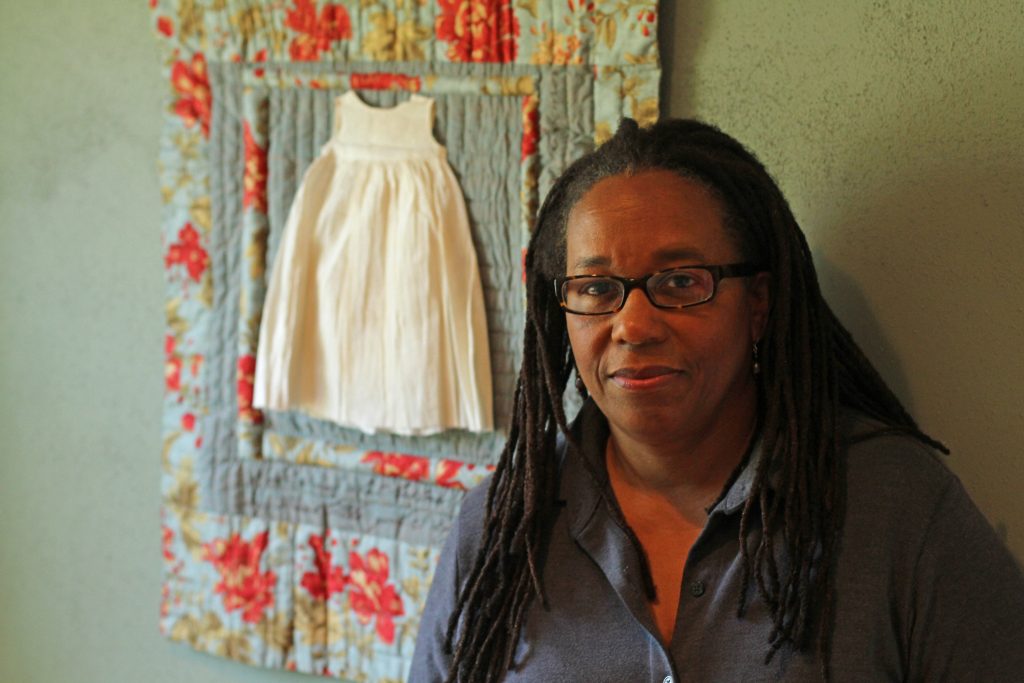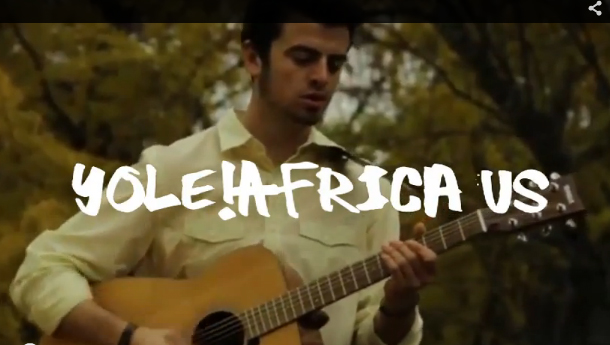
Francisco Laguna-Correa is a PhD student in Hispanic studies and 19th century cultural studies, with a focus on Mexico. He is enrolled in the Department of Romance Languages in the UNC College of Arts and Sciences.
Where are you from and what is your country known for?
I am from Mexico City, a place known for many positive and negative stereotypes. I personally think of my city as a metropolis where you can find anything that you can imagine, from surreal bookstores and recondite restaurants to social demonstrations and significant social inequalities.
What languages do you speak?
I have studied several languages since middle school, including Latin, Greek, French, Italian, German and English. Thanks to the Institute for the Study of the Americas at Carolina, I was able to spend last summer at Yale University studying Nahuatl, the language of the Aztecs, which currently has more than three million native speakers throughout Mexico.
Why did you choose to study in the United States? And why at UNC?
I earned two Master’s degrees (one in philosophy and another in social anthropology) at the Autonomous University of Madrid in Spain. While I was in Madrid, I heard about Duke University, but after looking at the profiles of the faculty of Duke and UNC I decided that UNC was the better choice for me, mostly because the UNC Romance languages faculty carries out research that aligns with my intellectual interests. In fact, UNC was my top choice because I wanted to work with Juan Carlos González-Espitia, associate professor of Spanish.
What unique perspectives do you feel you bring to your classrooms as an international student?
I feel that my experience as a transnational student helps me to bring different intellectual perspectives and methodologies to the classroom. I started my college studies in Mexico City at the National University of Mexico (UNAM), where I acquired a passion for intellectual and social resistance, and, foremost, to pursue a more egalitarian distribution of power in our societies. Besides UNAM, I have studied at the University of Barcelona, Portland State University, the Autonomous University of Madrid, and now at UNC-Chapel Hill. Throughout all of these years of study, I have met and worked with many professors and fellow students, and this has allowed me to become more aware of the multiplicity of backgrounds and life experiences that can converge in our societies.
Which course at UNC have you enjoyed the most and why?
I really enjoyed the seminars “Poïesis in Latin American” taught by Juan Carlos González-Espitia, associate professor of Spanish, and “Indigenous Literatures in Latin America” taught by Emilio del Valle-Escalante, associate professor of Spanish. Both of these professors were able to transmit a deep passion for the subjects while engaging the class in crucial discussions about the past and future of the Latin American societies (including the United States).
What do you like best about UNC, and how is it different from universities in your home country?
I really like the funding opportunities that UNC offers to graduate students. In Mexico, these opportunities go almost exclusively to faculty.
What do you like best about living in Chapel Hill, and how is it different from your hometown?
Mexico City is very big and hectic most of the time, with something different to do every day. For instance, you can find a book presentation almost daily in Mexico City. Chapel Hill is quieter, thus offering more time to rest and study without many distractions. I also write fiction, so the suburban setting of Chapel Hill provides me with the time to work on my creative writing. Since I entered UNC, I have received three major literary awards, including the National Literary Prize of the North American Academy of the Spanish Language (ANLE) in 2012 for my book of flash-fictions Finales felices, and the International Poetry Prize “Desiderio Macías Silva” for my “broken novel” Ría Brava/Ría Grande, awarded by the Mexican publishing house Azafran y Cinabrio.
What have been the most significant challenges in adjusting to life in Chapel Hill and as a student at UNC?
I am used to and enjoy living in big cities, where you see lots of buildings and tons of cars, where you breathe and feel the burst of energy in the streets. Chapel Hill is an ideal place to devote yourself to your studies, but it lacks the combustion and intensity of a metropolis.
Which campus activities do you most enjoy at UNC?
I really enjoy going to the concerts organized by Carolina Performing Arts, the venue is great and the artists that UNC brings are internationally recognized. This is a great opportunity that UNC offers to us, and as a student you can get tickets for just $10 dollars. I have already bought tickets for this season and I will be attending four concerts during the fall semester, including a performance by Wynton Marsalis.
If you could introduce student activities from your hometown to UNC students, what would they be?
At the National University of Mexico students are definitely more politically involved. We used to organize peaceful demonstrations and write petitions on a regular basis, sometimes every week. I wish that UNC undergrads were more interested and involved in the social and political issues that affect our community, not just in the Chapel Hill area, but also in Durham and Raleigh. There are lots of social inequalities that I believe college students can attempt to address while in school. It is not necessary to finish our studies before we try to make a change in our societies.
Why should international students consider attending UNC? What advice would you offer an incoming international student?
Students overseas should consider coming to UNC because it is a top notch public institution that fosters innovative research in both the humanities and sciences. The UNC campus is beautiful, it has an old touch, however the facilities are modern and well-equipped. UNC also offers many great opportunities to international students, such as funding, study groups, and research activities amongst others.
What are you currently reading?
Besides the readings that I do to prepare for my oral and written exams, I am also reading False Stories by the Angolan writer Gonçalo Tavares and Pájaros en la boca by Argentinean Samanta Schweblin.




